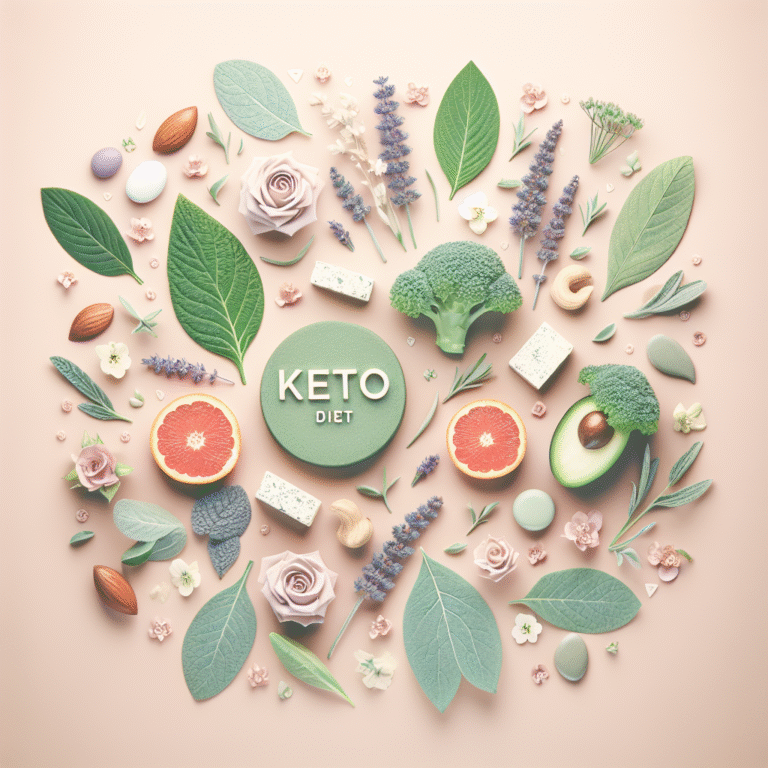Secret Health Benefits of Garlic

Garlic, a staple in kitchens worldwide, is not only celebrated for its ability to enhance the flavors of dishes but also for its myriad of health benefits that have been revered since ancient times. The pungent bulb, known scientifically as Allium sativum, has been used both as a culinary and medicinal ingredient for centuries. From ancient Egyptian tombs to modern scientific laboratories, garlic’s healthful properties have been extensively documented. This article delves into the secret health benefits of garlic, revealing why it should be a staple in your diet beyond just its culinary uses.
Nutritional Powerhouse
Garlic is a low-calorie food packed with essential nutrients. A single clove of garlic contains manganese, vitamin B6, vitamin C, selenium, and fiber. These nutrients contribute to the body’s overall health and well-being. For instance, manganese plays a crucial role in bone formation and nutrient metabolism, while vitamin B6 is vital for brain health and mood regulation.
Garlic is rich in bioactive compounds, the most notable being allicin, which is responsible for its distinctive smell and numerous health benefits. Allicin is formed when garlic is crushed or chopped, and it is known for its antimicrobial, antihypertensive, and cholesterol-lowering effects. This compound is a key factor in garlic’s ability to bolster the immune system and fight infections. Studies suggest that allicin can help reduce the severity of colds and flu when consumed regularly.

Beyond allicin, garlic contains other sulfur compounds such as diallyl disulfide and s-allyl cysteine, which have been linked to anti-inflammatory and antioxidant properties. These compounds help in combating oxidative stress, a major contributor to chronic diseases. Oxidative stress is often implicated in aging and a variety of diseases, including cancer, heart disease, and neurodegenerative disorders.
Nutritional Comparison Table
| Nutrient | Amount (per 100g) | Daily Value (%) |
|---|---|---|
| Manganese | 1.672 mg | 83% |
| Vitamin B6 | 1.235 mg | 95% |
| Vitamin C | 31.2 mg | 52% |
| Selenium | 14.2 mcg | 26% |
| Fiber | 2.1 g | 8% |
This table illustrates that garlic is a potent source of important nutrients, making it an invaluable addition to a balanced diet. Incorporating garlic into meals not only enhances flavor but also contributes significantly to daily nutritional needs.
Heart Health Ally
One of the most profound benefits of garlic is its positive impact on heart health. Several studies have shown that garlic can lower blood pressure, reduce cholesterol levels, and prevent heart disease. Cardiovascular diseases remain a leading cause of death worldwide, making preventive measures like incorporating garlic into the diet highly valuable.
Garlic has been shown to improve cholesterol levels by reducing total and LDL cholesterol, the type that contributes to plaque formation in arteries. In a study published in the Journal of Nutrition, participants who consumed garlic supplements for 12 weeks experienced a significant reduction in their LDL cholesterol levels compared to those who did not. This reduction in cholesterol helps prevent atherosclerosis, a condition characterized by the hardening and narrowing of the arteries, which can lead to heart attacks and strokes.
Moreover, garlic is known for its ability to lower blood pressure. It does so by promoting the dilation of blood vessels and enhancing nitric oxide production, which helps maintain a healthy blood flow. A meta-analysis of several studies indicated that garlic supplementation could reduce systolic blood pressure by an average of 4-8 mmHg, which can lower the risk of cardiovascular events. These findings suggest that garlic can be a natural adjunct to conventional blood pressure management strategies.
Immune System Booster
The immune-boosting properties of garlic are among its most celebrated benefits. Garlic aids in the prevention and treatment of various infections due to its antibacterial, antiviral, and antifungal properties. During times of heightened illness risk, such as flu season, garlic can be a valuable tool in maintaining health.
Garlic’s ability to enhance immune function stems from its high antioxidant content, which helps neutralize harmful free radicals. This is particularly beneficial during cold and flu seasons. In a study conducted by the University of Florida, participants who consumed aged garlic extract experienced a 58% reduction in the severity of cold and flu symptoms compared to those who took a placebo. This suggests that regular garlic consumption can enhance the body’s defense mechanisms.

Example of Immune Support
Consider the case of a community health initiative where participants were encouraged to incorporate garlic into their diets. Over the course of a year, there was a noticeable decrease in the incidence of upper respiratory infections among the participants, showcasing garlic’s role in supporting immune health. Such community-based interventions highlight how simple dietary changes can have significant public health benefits.
Cancer Prevention Potential
Garlic’s potential role in cancer prevention is a subject of ongoing research. The compounds present in garlic, such as diallyl sulfide, have been found to inhibit cancer cell growth and reduce the risk of certain cancers. This is particularly relevant in the context of increasing cancer rates and the search for preventive dietary measures.
Epidemiological studies suggest that regular consumption of garlic may lower the risk of developing stomach, colorectal, and prostate cancers. The anticancer effects are attributed to garlic’s ability to enhance DNA repair, reduce oxidative stress, and inhibit the proliferation of cancerous cells. For instance, a study published in the American Journal of Clinical Nutrition found that individuals who consumed high amounts of garlic had a lower risk of stomach cancer compared to those with lower intake.
While more research is needed to fully understand garlic’s anticancer properties, current findings are promising and suggest that incorporating garlic into one’s diet may contribute to cancer prevention. As research progresses, garlic’s role in cancer prevention could become even more defined, offering a natural strategy to complement traditional medical treatments.
Digestive Health Benefits
Garlic also plays a significant role in promoting digestive health. Its antimicrobial properties help balance gut microbiota by reducing harmful bacteria and promoting the growth of beneficial bacteria. A healthy gut microbiome is essential for digestion, nutrient absorption, and immune function.
In traditional medicine, garlic has been used to treat various gastrointestinal issues such as bloating, dyspepsia, and intestinal parasites. The prebiotic effects of garlic support the growth of probiotics, which are crucial for maintaining a healthy gut environment. Prebiotics are dietary fibers that feed the beneficial bacteria in the gut, enhancing their growth and activity.
Furthermore, garlic’s anti-inflammatory properties can alleviate gastrointestinal irritation, providing relief from conditions like irritable bowel syndrome (IBS). By reducing inflammation in the gut, garlic can help manage symptoms such as abdominal pain and discomfort, bloating, and irregular bowel movements.
Practical Tips for Incorporation
Incorporating garlic into your diet can be simple and rewarding. Here are some practical tips to help you harness its health benefits:
- Raw Consumption: Crushing or chopping garlic and letting it sit for a few minutes before consumption enhances allicin production. Add raw garlic to salads or dips for maximum benefits. The process of letting garlic sit allows the enzymatic reaction that produces allicin to take place, maximizing its health potential.
- Cooking Tips: To retain its health properties, avoid cooking garlic at high temperatures for prolonged periods. Add it towards the end of cooking to preserve its compounds. This ensures that the beneficial compounds are not destroyed by excessive heat.
- Supplements: Garlic supplements are available for those who do not enjoy its raw taste. Ensure the supplement contains sufficient allicin for effectiveness. Look for enteric-coated supplements to ensure that the active compounds are not destroyed by stomach acid.
- Garlic Infused Oil: Make garlic-infused oil by submerging crushed garlic in olive oil. This can be used as a flavorful dressing or cooking base. Infused oils can add a subtle garlic flavor to dishes without the pungency of raw garlic.
- Fermented Garlic: Try black garlic, which is aged and fermented, offering a sweeter taste and additional antioxidant benefits. Fermentation enhances the antioxidant properties of garlic and may improve its health benefits.
Frequently Asked Questions
1. How much garlic should I eat daily?
- A moderate intake of 1-2 cloves per day is generally recommended for health benefits. However, consult a healthcare provider for personalized advice, especially if taking supplements.

2. Can garlic cause any side effects?
- While garlic is safe for most people, excessive consumption may cause digestive issues or allergic reactions. It can also interact with certain medications, such as blood thinners.
3. Is cooked garlic less effective than raw?
- Cooking can reduce the allicin content, but garlic still retains beneficial compounds. To maximize benefits, add garlic towards the end of cooking or consume it raw.
4. Does garlic help with weight loss?
- Garlic can support weight loss indirectly by boosting metabolism and reducing inflammation, but it should be part of a balanced diet and active lifestyle.
5. Can garlic supplements replace fresh garlic?
- Supplements can be convenient but may lack some of the nutrients found in fresh garlic. It’s best to use a combination of both for optimal benefits.
In conclusion, garlic is a versatile and powerful ally in promoting health and preventing disease. Its impressive array of benefits makes it an essential component of a nutritious diet. Whether consumed raw, cooked, or in supplement form, garlic’s health-promoting properties are undeniably profound. Embracing this humble bulb in your daily routine can lead to significant health improvements and contribute to overall wellness.
Ready to Transform Your Health?
🥑 Download our FREE Complete Keto Diet Plan and start your journey to better health today!
[convertkit form=7803861]
—
Disclaimer: This content is for informational purposes only and does not constitute medical advice. Always consult a qualified healthcare professional before making changes to your health regimen.





